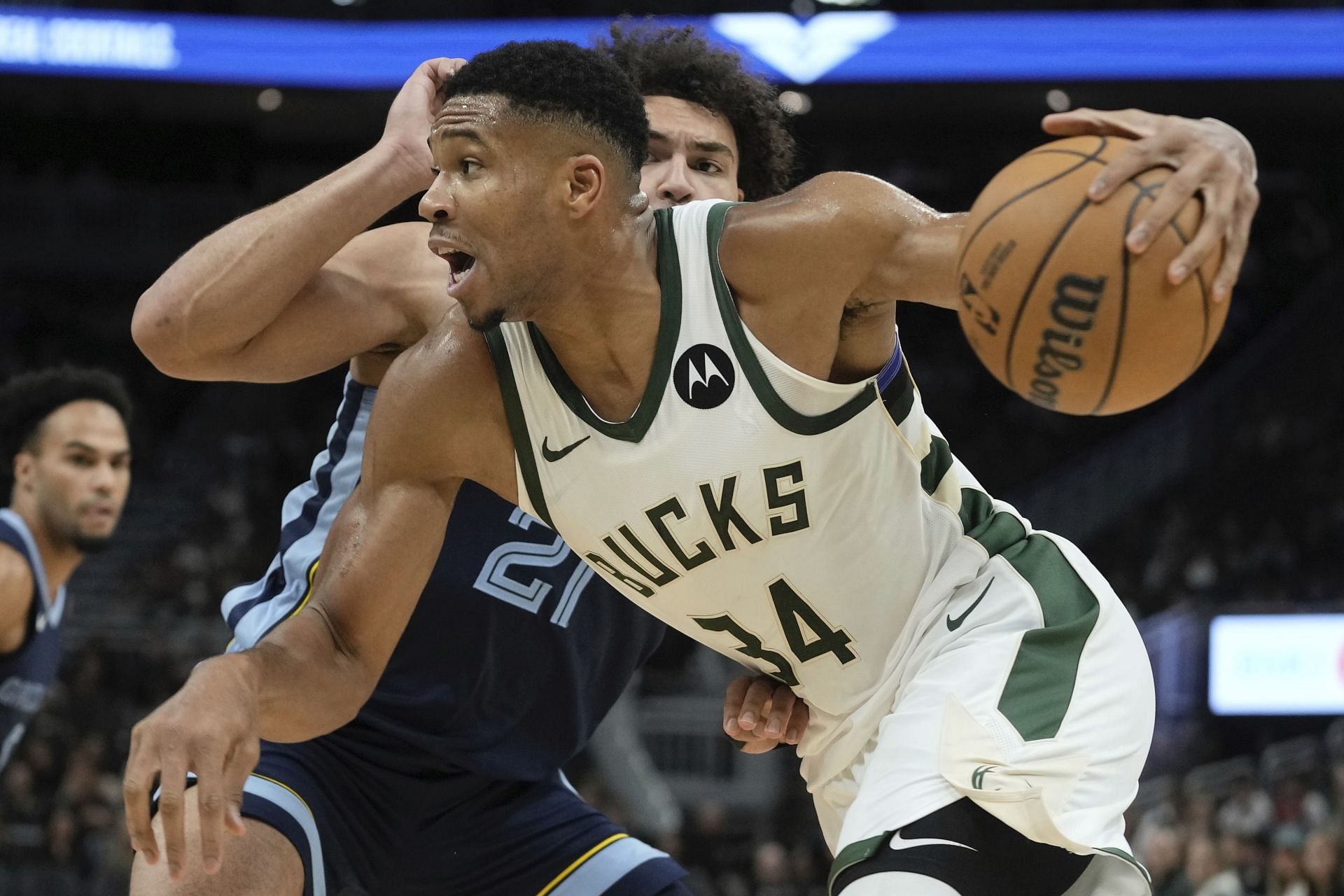
Over 38 rule in NBA: What does it mean, where it applies and more explained
The NBA collective bargaining agreement has a rule called the "Over 38" rule. The rule has once again come into the spotlight following Giannis Antetokounmpo's recent signing of a lucrative extension. But what exactly is the "Over 38" rule and how does it work?
The Over 38 rule in the NBA applies to player contracts. It limits teams from giving out contracts of four or more years to any player who is at least 38 years old or will turn 38 during the contract. The age limit used to be 35 but it was then pushed to 36. In 2016 Chris Paul led the movement to push the number to 38.
Giannis Antetokounmpo has recently signed a three-year contract extension with a player option in the final year, which means he will be able to earn even more money in the future. The extension will enable him to sign a short-term deal in 2026 and then another four-year contract in 2028, without being affected by the Over 38 rule. Giannis, also known as the 'Greek Freak', is currently 28 years old.
The Over 38 rule has impacted LeBron James as well. In 2022, he signed a contract worth $97.1 million for a duration of two years. Since he is 38 years old, James is now limited to signing only two-year deals. He usually prefers to sign shorter term contracts, giving up some money to maintain flexibility and put pressure on his team's front offices.
This time James probably wanted to sign a two-year deal in order to have the potential flexibility to play with his son Bronny James. Bronny is a freshman at USC and is expected to play his first season of college basketball after suffering a cardiac arrest this summer.
After this season James would be eligible for the 2024 NBA Draft. It seems unlikely at this point but, you never know. Also it remains to be seen if James would leave the Lakers to play one more season with his son wherever he lands in the NBA.
Exceptions to the Over 38 rule
There are a couple workarounds to the Over 38 rule. Chris Paul spearheaded the movement to the rule. However, he also avoided it once.
The one exception to the rule comes when the player is under 35 years old when they sign the deal and the team has the player’s Bird rights. These rights allow teams to pay more and go into the tax or break other rules in order to keep their current player rather than see him walk to another team.
A team can gain a player's bird rights in two ways. The primary cause is a player's longevity. A team obtains Bird rights when a player has been with the team for more than three years or was dealt while under contract for three or more years.
Paul met those conditions when he signed his four-year, $120 million deal with the Suns. He was allowed to sign the deal even though he would turn 38 during the deal. Paul has since been dealt to the Warriors. He is in the third year of his deal at 38 years old. He has one year left worth $30 million, while the final year is non guaranteed.